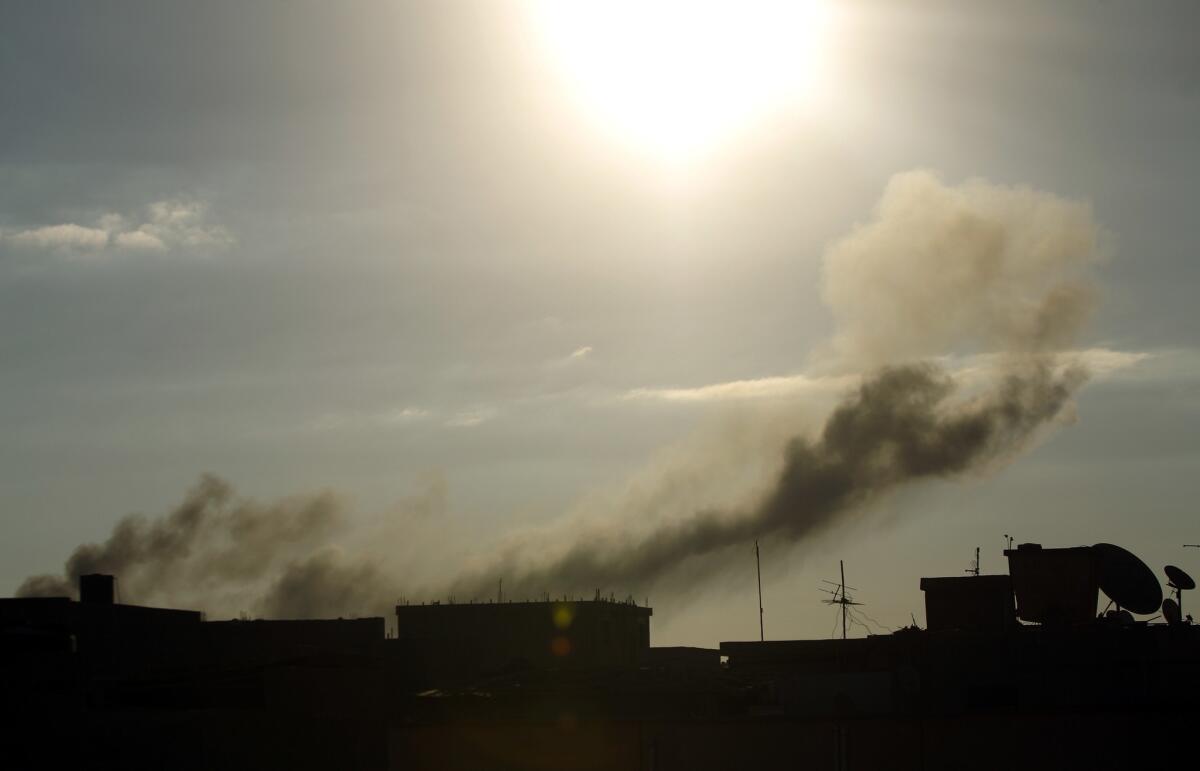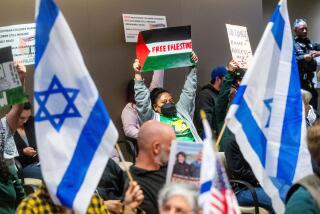U.N. Security Council takes aim at Libyan warlords

- Share via
Reporting from Washingon — The United Nations Security Council on Wednesday took the first step toward punishing Libyan warlords or militias for their role in the country’s 3-year-old conflict.
Amid worry that the chaos is drawing in other Arab nations, the council unanimously adopted a resolution making groups and individuals subject to economic sanctions for actions that “threaten the peace” or “obstruct the successful completion” of attempts to set up an effective government in Libya.
Western and Middle Eastern countries have been looking for new ways to halt fighting that has left the north African country a semi-lawless state, a terrorist haven and a regional hub of drug and arms trafficking.
U.S. officials were caught off guard this week when United Arab Emirates warplanes operating from Egyptian bases carried out airstrikes in an ultimately unsuccessful attempt to prevent Islamist militias from seizing Tripoli’s international airport. The militias are reported to be in control of much of the capital.
The resolution, drafted by Britain, stops short of imposing sanctions, hoping instead to scare warlords into compliance by redefining who could be hit with penalties.
Advocates of sanctions argue that they could be effective, because militia leaders have strong banking, trade and family ties to Europe.
Sanctions imposed on Libya have previously been aimed more at associates of former leader Moammar Kadafi.
The Obama administration and European allies have been looking for ways to stabilize the country since a North Atlantic Treaty Organization air war helped insurgents oust Kadafi in 2011.
Another idea under consideration is the creation of an international armed force to help the new government and protect it from attack.
For foreign policy news, follow @richtpau on Twitter
More to Read
Sign up for Essential California
The most important California stories and recommendations in your inbox every morning.
You may occasionally receive promotional content from the Los Angeles Times.














